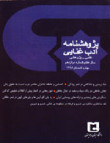The Factors of Poetry Creation in Nezami Ganjavi's Poetic Theory
The factors and conditions that influence the poet's heart and soul in the creating poetry are of great importance in the creation of it; generally, poets, scholars and critics pay attention to these factors, and they are scientifically followed by theorists and new philosophers. However, the question remains that what causes the poetic atmosphere and mood? Sometimes this ability is only assumed as something innate and accessible to certain people, and some believe that, everyone can become a poet with practice and experience just like any other skill. According to Hakim Nezami's explicit comments on poetic techniques and its conditions, it is very interesting and valuable to deduce and clarify Hakim Nezami's views in this respect. IT seems necessary to collect and compile his valuable views which are neglected due to being scattered among the poet's words in a form of a coherent view to guide the followers of correct speech; while helping them to better know him and his artistic techniques.The presence or absence of coherent literary theory in the literary history of the Orient, especially in the field of Ancient Persian Literature, is one of the issues that has always been dealt with briefly and without any scientific support. Is it Possible to imagine all the beauty and variety that is evident in Persian Literature without any theoretical support? The span and variety of the issue dimensions in Nezami Ganjavi's poems compels us to examine one of them, namely, the factors of poetry creation in the poet's literary theory, and try to answer the following question: Does he have clear comments on the factors of poetry creation? And if so, how can they be classified, and what relations do they have to modern and contemporary literary theories?
On the one hand, the researcher investigated Kolliyat of Hakim Nezami including poems, using historical analysis, and on the other hand, to clarify the origins and basis of literary theories, this technique was investigated from Plato to Rolan Barthes and the contemporary philosophers and other eminent theorists. Finally, the poet's views on the creation of poetry were deduce
It is true that the creator of an artistic work is the one who can understand the factors of the outside world and discovers its secrets better than the others. However, his relation with outside world do not necessarily always follow the rules of wisdom. Sometimes the relationship with the outside world stimulate his mind and makes it aware of great forces which he himself might not be familiar with..From the formalists' point of view, generally art is not the purpose or the frame of an artistic work but a process through which perception is reduced or even disconnected. As such, critical investigations are also to achieve such influences (Keri, se, 1381: 33)Therefore, it should be considered a place for wisdom, along with the trance and the unconsciousness, in poetry creation space. Although, from a poetic structure point of view, Nezami sometimes comes close to the ideas that conform to formalism (Ismaili, R. K. 1394), this never leads to ignoring the place of reason in the creation of poetry and it makes him a generally rational poet.Bares believes that the place of wisdom and its use in the creation of poetry and art has a definite boundary. He says: If the creator of a literary work wants to use wisdom from the beginning, not only does it fail to empower other internal forcesbut also cripples them. The artist must know that the time of using instinct is before any reference to wisdom or logic (Bars, 1968: 104).In Nezami's perspective, wisdom is the head of human soul and can pave the way for all the difficult ways, including the ambiguous path of poetry creation, and any speech that does not correspond to this old man's logic would be worthless. In the mind of the wise poet, wisdom and art have a close relationship with each other that can serve as an introduction or complement on and to each other. This correspondence is of course inevitable and just as art requires wisdom, wisdom also requires art and artistry (Nizami, 1388: 51).Phenomenologists insist that the poetic image is "something empty". It is not an image drawn on a canvas or on a sheet of paper, it is merely a virtual, metaphorical, or ironical expression that cannot be seen. The original content of the poem is neither images, nor expression of thought and language (Ahmadi, 1370: 59). This view is far from what Nezami thinks of the close relationship between poetry and wisdom. Nezami remains a rationalist poet while employing images from the world of senses and what is beyond. Sometimes he has arguments on affairs which are really rational. And if it is not possible, his arguments become poetic. It is a sort of poetry that follows wisdom.
Although the criticism and literary theorizing were not dominant in the past of Iranian and Oriental literature; no written works have been compiled in this respect and they have not received much attention in the way that was common in ancient Greece and the West, It does not mean that Iranian poets and intellectuals did not have any theories in the field of literature and literary criticism. The reason is that direct and indirect cues of many of these great characters in the field of criticism and theorizing represent deep intellectual challenges in this regard.He was unrivaled in direct expressing of his views on literary theorizing and poetical techniques if not unique. He provides a logical framework for his poems and thoughts, and seeks to apply this thought frame to his poems and reveal it to others. In the context of the factors that influence the creation of poetry and a poetic atmosphere and mood, he mentions noticeable factors which are classified under the following topics: Divine Grace, Solitude and Loneliness, Poetic Atmosphere and Mood, Poet's Inspiration, Angel, and Fairy Impression, the Introduction of Magic, the Developing and Propagandizing of Religion, Wisdom, Heart-centrism the Buyer of Speech, the Name and Reputation of the Poet and the Spreading of Science; the poet's deep look was revealed in this field by referring to his poems. It seems that the views which have been raised in the field from the past to the present are summed up in his own. The author's intention is to extract and classify all of Nezami Ganjavi,s comments and to formulate them by explaining his poetic theories so that these prose gems would be presented in a form of a poetic chain.
- حق عضویت دریافتی صرف حمایت از نشریات عضو و نگهداری، تکمیل و توسعه مگیران میشود.
- پرداخت حق اشتراک و دانلود مقالات اجازه بازنشر آن در سایر رسانههای چاپی و دیجیتال را به کاربر نمیدهد.



